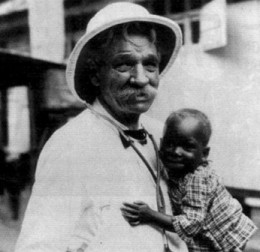 The face of medical missions has changed dramatically since Albert Schweitzer left for Gabon in 1910. He served isolated people with very limited medical resources. Over the last 100 years we have witnessed enormous increases in international relations and medical capabilities. We have also seen the capitalization of medicine into an industry, the rise of HIV, natural disasters, and terrorism.
The face of medical missions has changed dramatically since Albert Schweitzer left for Gabon in 1910. He served isolated people with very limited medical resources. Over the last 100 years we have witnessed enormous increases in international relations and medical capabilities. We have also seen the capitalization of medicine into an industry, the rise of HIV, natural disasters, and terrorism.
What does all this mean for the future of medical missions? Without a doubt there will continue to be a multitude of people in severe need of medical care. Some physicians and other health care professionals will also continue to be highly motivated out of compassion to assist those in need. Yet our approaches to such care must flex with the realities of today’s world. The following trends will mark the future of medical missions:
• Emphasis on basic care. In a world of limited medical resources expediency is a key concept. Dollar for dollar, more health can be “purchased” by emphasizing clean water, nutrition, vaccinations, contraception, and well child care than can be attained through hospital services. Yet hospital care also fills needs that are both painful and real, and will continue to play a role.
• Emphasis on training. Health workers with very basic training can make an impact on their communities. Courses of 3-6 months duration will be an essential health strategy in developing countries. On a higher level, training national leadership in schools of public health will continue to facilitate ownership and national self-sufficiency.
• Emergency response. SARS and the recent tsunami are striking reminders that lives may fall into peril at any moment. Preparation for such crises will remain both a high priority and an excellent opportunity to show compassion.
• Volunteer service. Medical missions bring out the very best in doctors and other health professionals. Besides meet genuine human needs, it reignites many of the virtues that propelled us into medicine in the beginning.
Service in developing nations will doubtlessly remain a timeless medical career hallmark, and INMED will continue to provide the training essential to success in this field.
